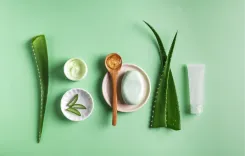How To Keep Wooden Spoons Like New
By Hira Waheed
25 May 2023
Wooden spoons have long been a staple in kitchens around the world, cherished for their natural beauty, versatility, and gentle touch on cookware. However, like any kitchen tool, they require proper care to maintain their appearance and functionality over time.
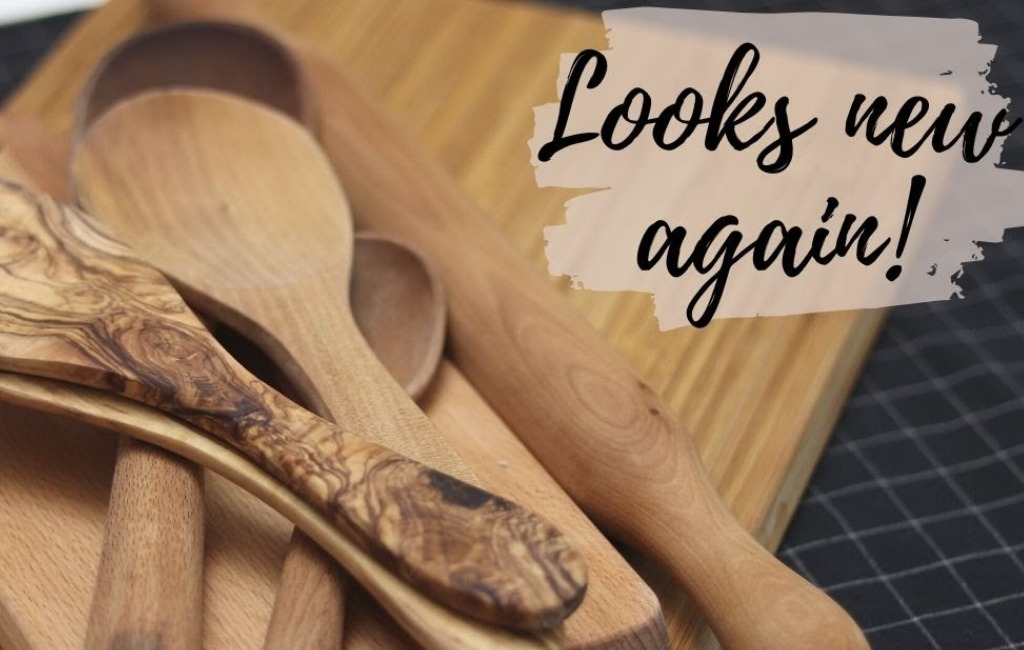
The Benefits of Wooden Spoons
Wooden spoons offer several advantages that make them a preferred choice for many cooks and chefs. Here are some key benefits:
Non-reactive
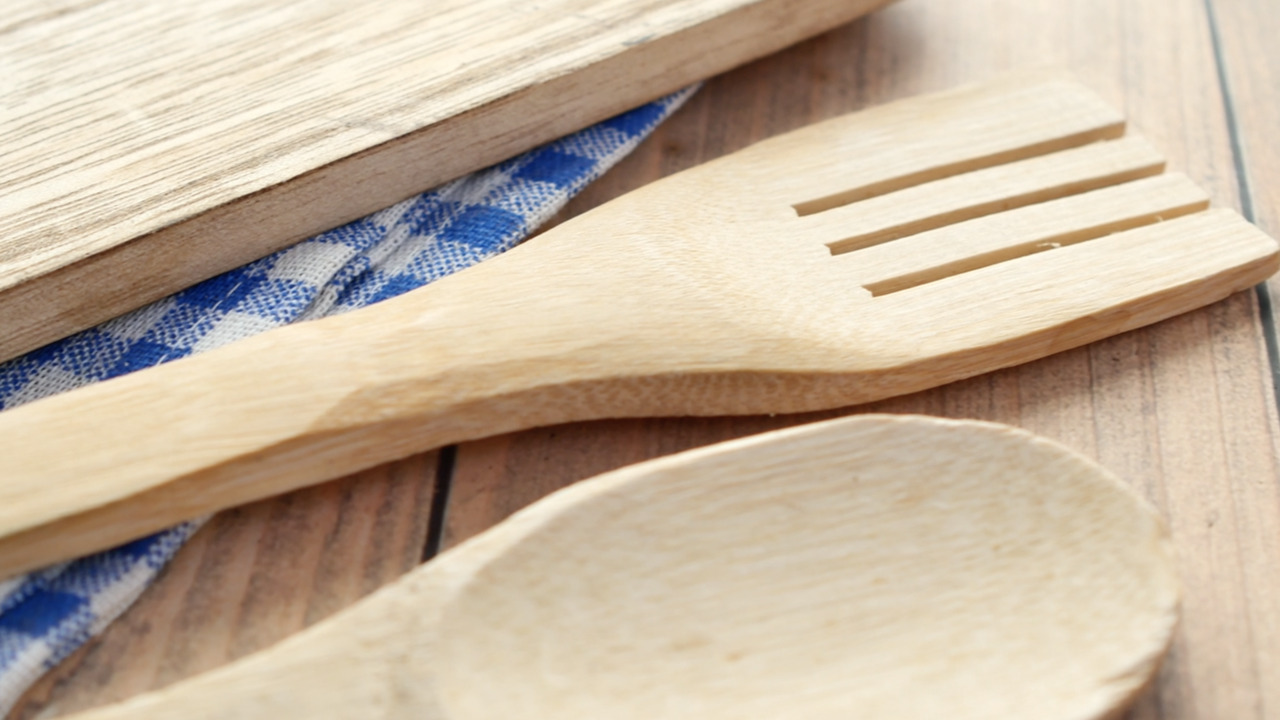
Wood is non-reactive, meaning it does not interact with acidic or alkaline ingredients. This makes wooden spoons safe to use with all types of food, preserving the flavors and integrity of your dishes.
Gentle on Cookware
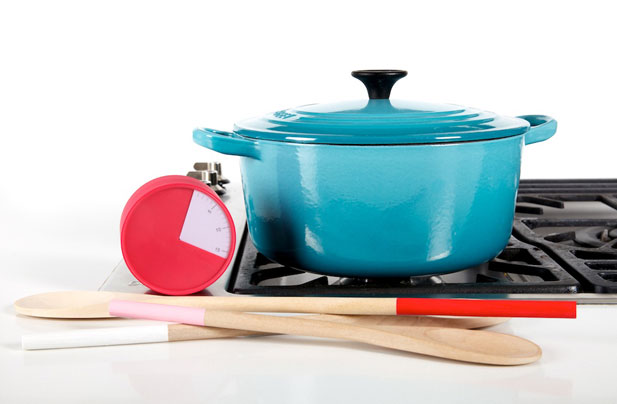
Unlike metal utensils, wooden spoons are gentle on cookware surfaces, particularly non-stick pans and pots. They help prevent scratches or damage to the coating, prolonging the life of your cookware.
Heat Resistance
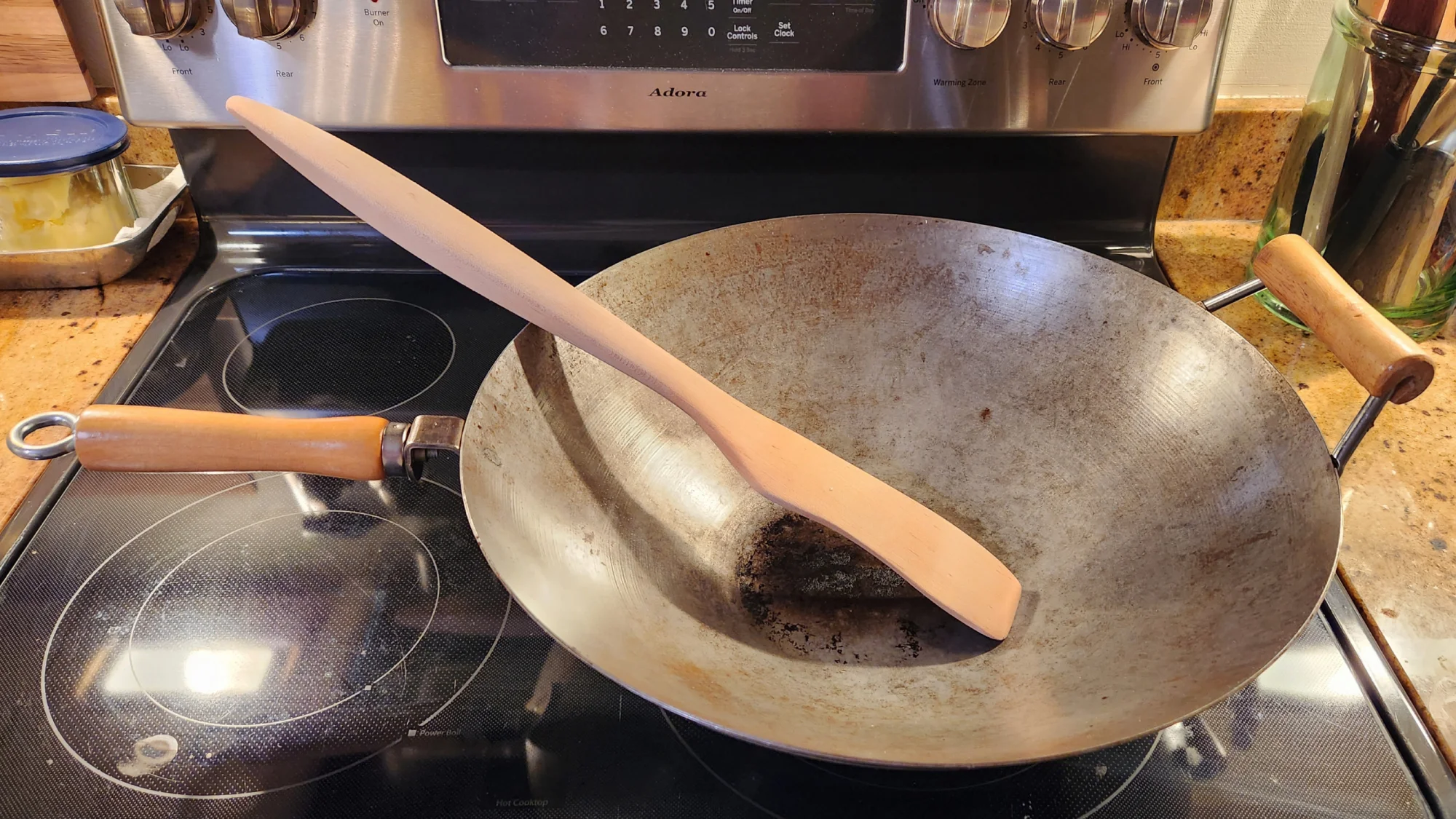
Wood is a natural insulator, making wooden spoons heat-resistant. They do not conduct heat as readily as metal spoons, allowing you to stir hot dishes or cook in high-temperature environments without the risk of burning your hands.
Versatility

Wooden spoons come in various shapes and sizes, making them versatile for a wide range of cooking tasks. They can be used for stirring, mixing, flipping, scraping, and even serving, offering convenience and efficiency in the kitchen.
Tips to Keep Wooden Spoons Like New
To keep your wooden spoons looking and performing their best, follow these tips:
1) Handwashing 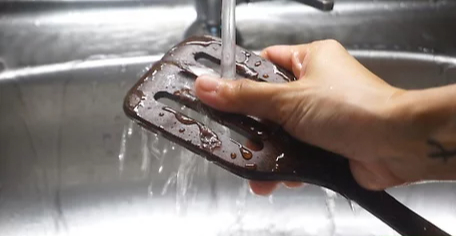
Avoid putting wooden spoons in the dishwasher or soaking them for extended periods. Instead, wash them by hand using warm water and mild dish soap. Gently scrub any food particles or stains, and rinse thoroughly.
2) Prompt Drying
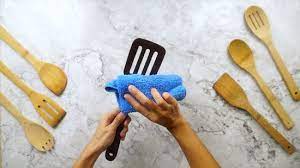
After washing, ensure your wooden spoons are completely dry before storing them. Excess moisture can cause the wood to warp, crack, or develop mold. Towel dry them, then allow them to air dry in an upright position.
3) Oil Treatment
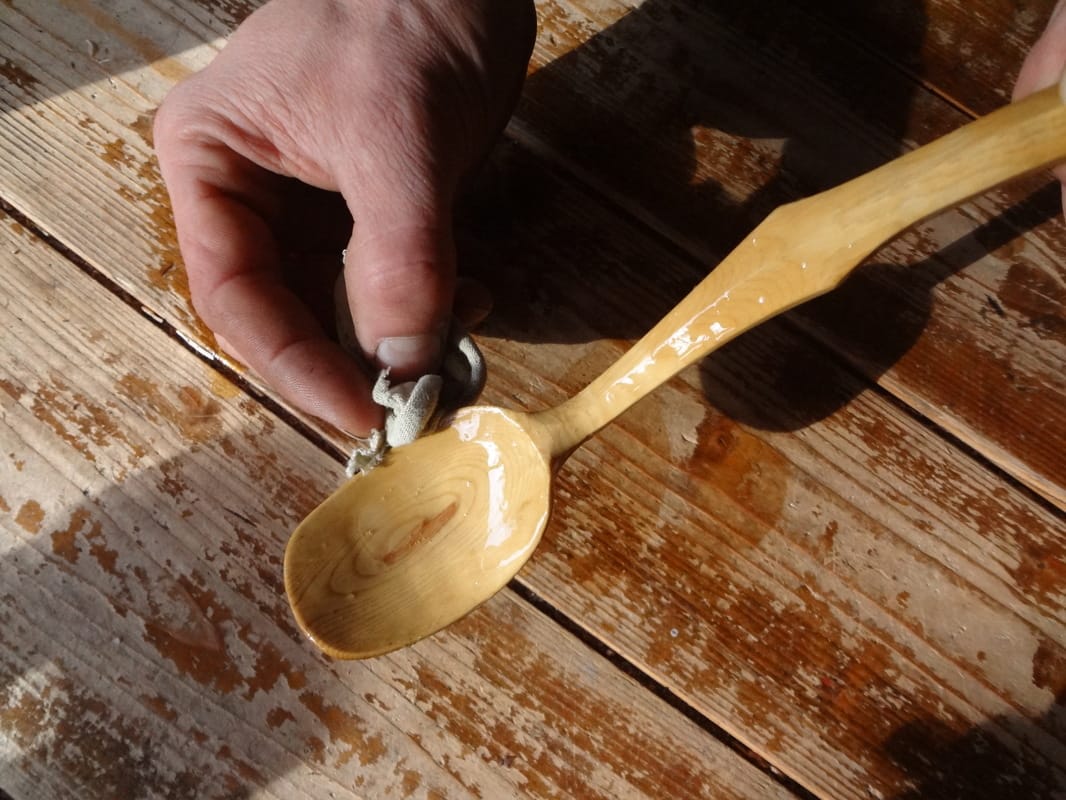
Regularly applying food-safe oil helps nourish the wood, preventing it from drying out or developing cracks. Mineral oil or food-grade oils like coconut oil or walnut oil work well for this purpose. Apply a small amount of oil to a clean cloth and rub it onto the spoon's surface, including the handle and bowl. Wipe off any excess oil and allow it to absorb.
4) Avoid Extreme Temperatures
Wooden spoons should not be exposed to extreme temperatures. Avoid leaving them near stovetops, in direct sunlight, or the oven. Extreme heat can cause the wood to warp or split, while excessive cold may lead to cracking.
5) Stain Removal
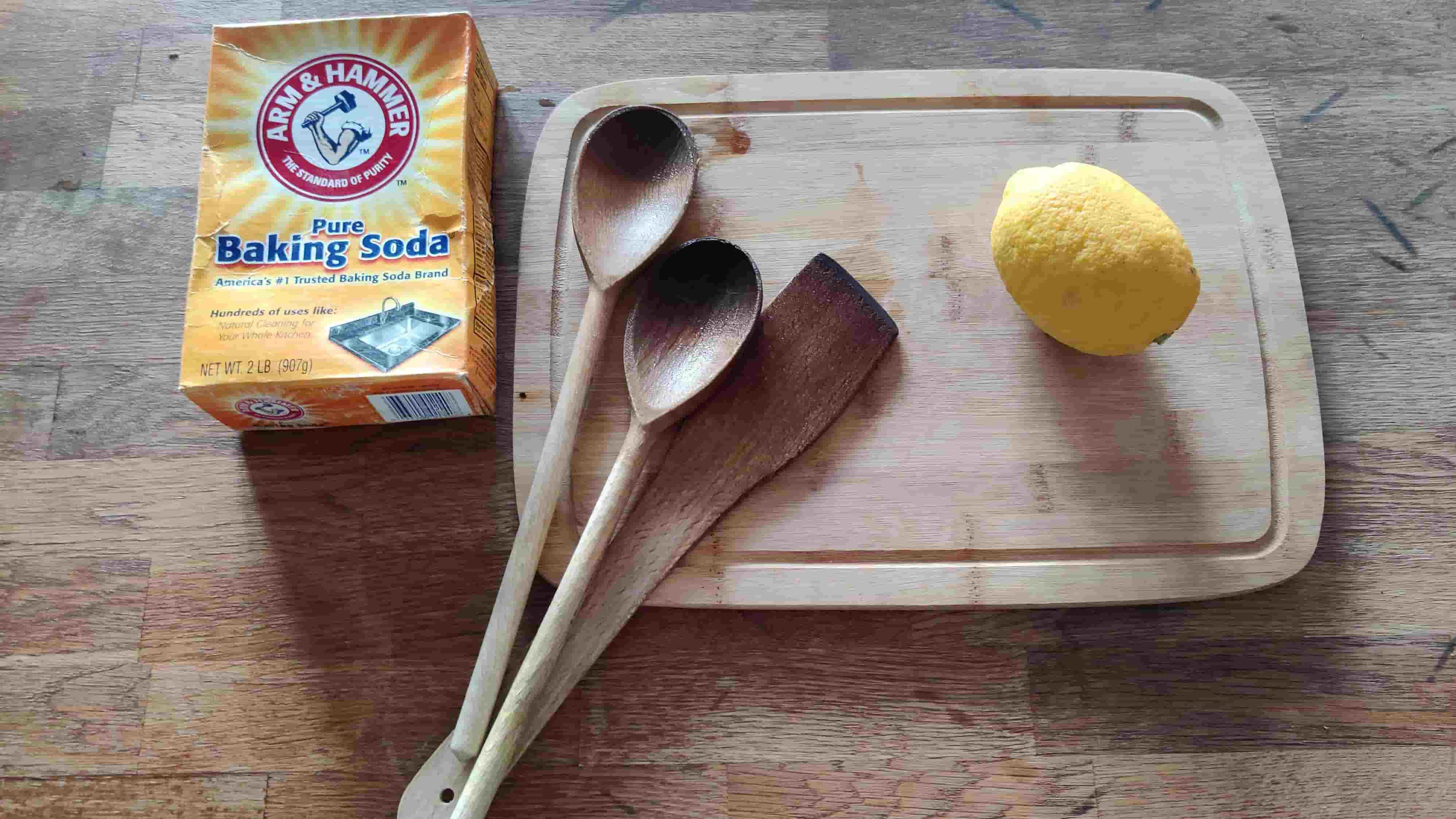
If your wooden spoons develop stains from ingredients like turmeric or berries, there are natural remedies you can try. Create a paste using baking soda and water, and gently rub it onto the stain with a soft cloth or sponge. Rinse thoroughly and dry.
6) Sanding and Refinishing
Over time, wooden spoons may show signs of wear or roughness. If the surface becomes rough or develops splinters, lightly sand the spoon using fine-grit sandpaper. Follow up with an application of food-safe oil to restore its smoothness and luster.
Conclusion
Remember, proper care and maintenance not only preserve the appearance of your wooden spoons but also contribute to their longevity and functionality. By treating them with care, you can continue to enjoy the benefits of using wooden spoons in your kitchen, appreciating their natural beauty and gentle touch on your cookware.
So, the next time you reach for your trusty wooden spoon, take a moment to give it the attention it deserves.
You Might Also Want To Read This
Popular Posts







